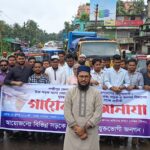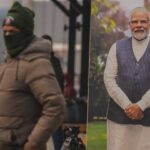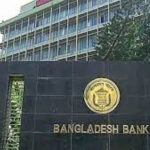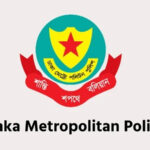Moon Desk: Bangladesh Road Transport Authority (BRTA) will start conducting mobile courts for drivers dope test at bus stations across the country soon as drug addiction is thought to be one of the major factors for road accidents, an official said.
“We already made dope test mandatory to get or renew professional driving license. We are now working on two issues, one is to make it compulsory for non-professional drivers and another is to drive mobile courts for drivers’ dope test,” BRTA Director (Safety) Sheikh Mohammad Mahbub-e-Rabbani said.
He said BRTA will conduct mobile courts with its own allocation and it will start soon.
Leaders of transport owners’ association and transport workers, however, admitted that some bus and truck drivers take drugs which are responsible for reckless driving.
Road safety experts said proper and regular drug tests on drivers were essential as the possibilities of accidents increase when a driver taking drugs runs a vehicle.
Mahbub-e-Rabbani informed that BRTA, now, is giving licenses for professional drivers after getting dope test reports from all district-level government hospitals, six hospitals in Dhaka city and all laboratories approved by the Department of Narcotics Control.
“A person with a positive dope test report or negative comments would not be allowed to get a professional driving license from BRTA,” he added.
He, however, said the government is taking necessary measures to increase the capacity of government hospitals or laboratories to make dope test must for non-professional drivers.
BRTA has introduced the system as per directive of Prime Minister Sheikh Hasina to bring public transport workers under a dope testing system, he mentioned.
According to experts, a driver can feel drowsy after taking drugs and they may lose control over the steering, causing accidents. In many cases, a driver may feel overconfident and try to dangerously overtake other vehicles after taking drugs.
On June 20, 2019, the High Court ruled that the drivers must be tested for drugs and eyesight before they were given driving licenses to check accidents.
The court also asked the government, the BRTA and the police to introduce a system in six months for carrying out the tests.
Following the directive, Dhaka Road Transport Owners Association leaders on September 18, 2019 announced that they would arrange drug tests for the bus drivers in Dhaka city from December 1 of that year with the help of the authorities.
Prime Minister Sheikh Hasina on October 22, 2020 also asked the authorities concerned to bring the drivers under a drug-testing system to know if they had drugs.
Delivering her speech on October 22, 2020, to mark National Road Safety Day, the premier directed the authorities to bring drivers under a dope testing system.
“We need to know whether those who are driving (vehicles) use drugs. They need to undergo dope testing. This test is essential for each driver. You must do it,” she had said.
Later, BRTA formed a committee that gave several other recommendations including carrying out an on-spot test to check possible drug addiction of drivers.
The Bangladesh government has already constituted a high powered committee in 2019 for reducing road mishaps focusing on multi-sectoral implementation and road safety management.
A new Road Transport Act, with a substantial focus on road safety, came into effect in November 2019 to replace the Motor Vehicle Ordinance of 1983.
The new Act mandates stricter punishment for traffic offenses, greater accountability from the operators and designers for safety performance, and increased enforcement of road safety behavior through the deployment of mobile courts.
To enforce these provisions on the ground, significant improvements in management, coordination, governance systems, procedures, processes, tools, and facilities are necessary at every level of operation and every government tier, specifically to ensure safer infrastructure, certification of the roadworthiness of vehicles and improvements in licensing drivers, and prompt post-crash recovery and rescue.
According World Bank’s appraisal document on its Bangladesh Road Safety Project, over half of all road death victims are the poor and vulnerable, with pedestrians accounting for almost half of these deaths.
Road crashes also affect the poor rural families disproportionately, with a greater percentage falling into economic distress than others.
A long-term commitment and sustained vision from the highest level of the government along with commensurate investments in effective road crash fatality and injury prevention, will contribute to sustainable and inclusive economic growth and overall well-being, the document suggested.





